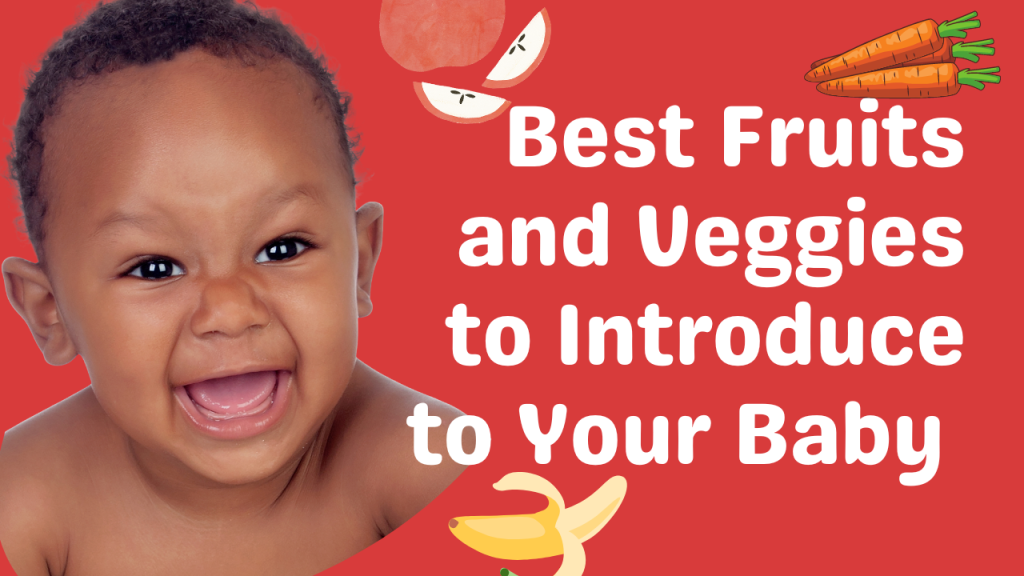Best Fruits and Veggies to Introduce to Your Baby

June is National Fresh Fruit and Vegetables Month! The weather starts warming up, farmers markets begin popping up in your neighborhood again, and you’re able to enjoy delicious summer fruits and veggies in your backyard. Do you want your baby to be able to enjoy these foods too, but you’re not sure how to start? Read our guide for introducing fruits and veggies to your baby, how to introduce them, and when.
When can I introduce solid fruits and vegetables?
Every child is different. Generally, the American Academy of Pediatrics recommends introducing solid foods to babies when they are about 6 months old. Your baby is developmentally ready when she can control her head movements, can sit up with little or no support, and shows interest in food by opening her mouth or leaning forward when food is offered. Also, make sure your baby can move food to the back of her throat to swallow.
How should I start introducing different foods?
Remember to be patient and go slowly. Your baby may not like eating these new veggies and fruits right away. Start by feeding your baby a half spoonful of mashed or pureed food during one meal a day at first. If baby cries or refuses the spoonful of food, try again another time. Stick with one vegetable or fruit for about 3 to 5 days before switching to a new one. You’ll be able to notice problems like food allergies if you try one new food at a time.
What are some great fruits and veggies I can start with?
Carrots are rich in beta-carotene (vitamin A) as well as fiber, potassium, and antioxidants.
Avocado are easy to mash or puree. Their creamy texture comes from “good fat” that is vital for a growing baby.
Butternut squash is easily digestible and an excellent source of beta-carotene. It also rarely causes allergies.
Sweet potato is a good source of vitamin C, potassium, and fiber. They’re easy to mash or puree into an easy to eat texture.
Bananas are packed with nutrients like potassium, folate, and vitamin A. They’re naturally sweet, so they’re more readily accepted by babies.
Pears are high in fiber, vitamin C, and potassium. They’re gentle on your baby’s tummy and don’t often cause allergies, either.
Apples are easily digestible and thanks to their soluble fiber, can help fight against constipation.
Cantaloupe has a naturally sweet taste that will appeal to your baby. It’s also rich in beta-carotene and vitamin C.
Before serving your baby fruits and veggies, remember to wash them first! Then you can bake, boil, or steam them until soft. You can puree the fruit or vegetable in a food processor or blender, or mash it so it’s easy for baby to eat. If your baby doesn’t seem to like a food in pureed form, try it mashed. The texture may be off-putting at first. Finally, don’t give your baby foods that can be a choking hazard, like grapes, blueberries, or chunks of fruit or vegetable. Be sure to cut these up into smaller pieces if you decide to introduce them to your baby.
—
If you need more guidance on introducing other solid foods to your baby, take a look at our blog post about solid foods. Or, connect with Maternal Instincts to find out how our services can help you with your baby’s nutritional needs.

